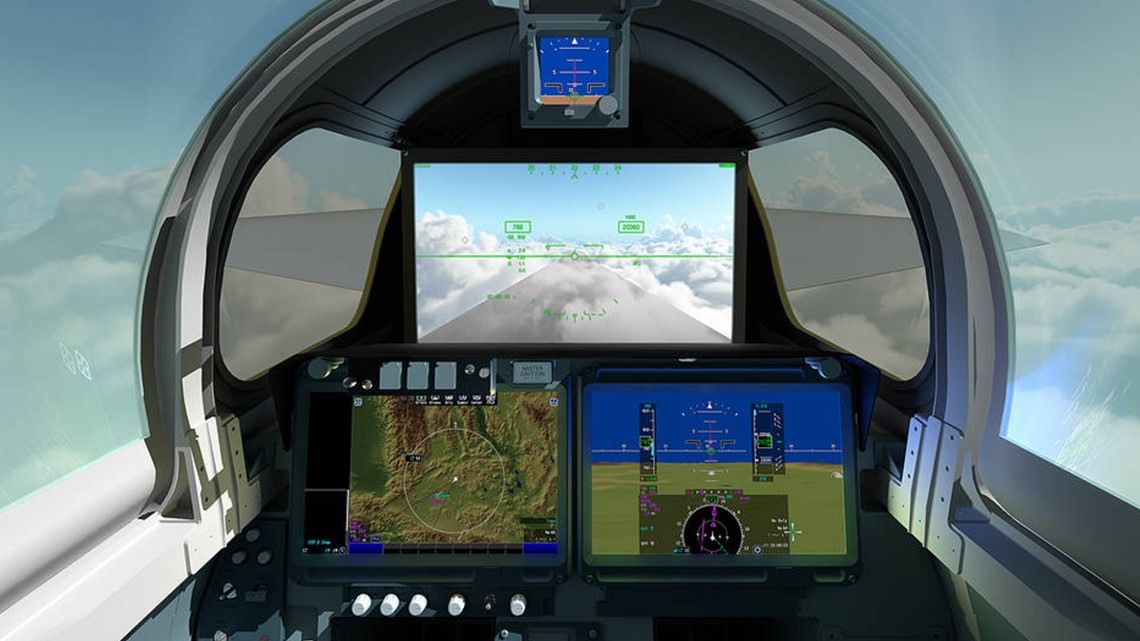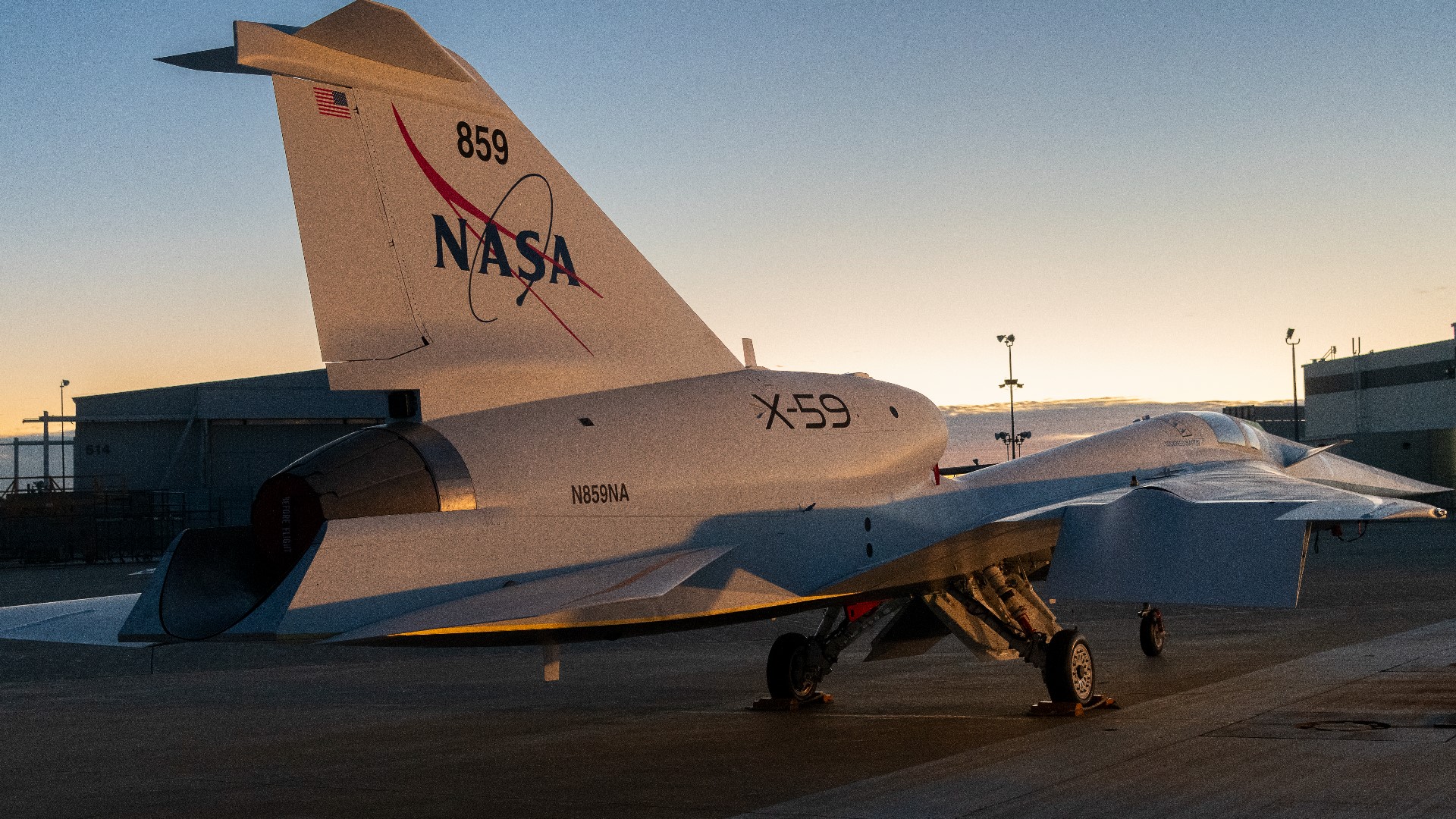PALMDALE, Calif. — NASA and Lockheed Martin on Friday unveiled to the public its new X-59 plane, an experimental aircraft that will demonstrate the ability to fly supersonic while generating a gentle “sonic thump” rather than the normally loud sonic boom.
Once the X-59 completes testing, NASA’s Quesst team will select several U.S. communities to fly the aircraft and gather data on how people perceive the sound it produces.
It's expected to fly at 1.4 times the speed of sound, or 925 mph, at 55,000 feet, according to NASA.
"Meticulously engineered, it's designed to produce a gentle thump. A mere whisper compared to the disruptive booms of the past. So this breakthrough really redefines the feasibility of commercial supersonic travel over land," said Pam Melroy, NASA's deputy administrator. "It brings us closer to a future that we can all understand, cutting flight time from New York to Los Angeles in half."
The aircraft's shape and technological advancements have been designed to make quiet supersonic flight possible. One unique element is that the cockpit is located almost halfway down the length of the plane and doesn't have a front-facing window. Instead, pilots will rely on a series of high-resolution cameras feeding a 4K monitor in the cockpit.


The plane is scheduled for its first test flight later this year and will eventually be flown over several U.S. communities. Data from those tests will be shared with U.S. and international regulators, who may consider new rules that would lift the 50-year-old ban on all civilian supersonic flights over land.

